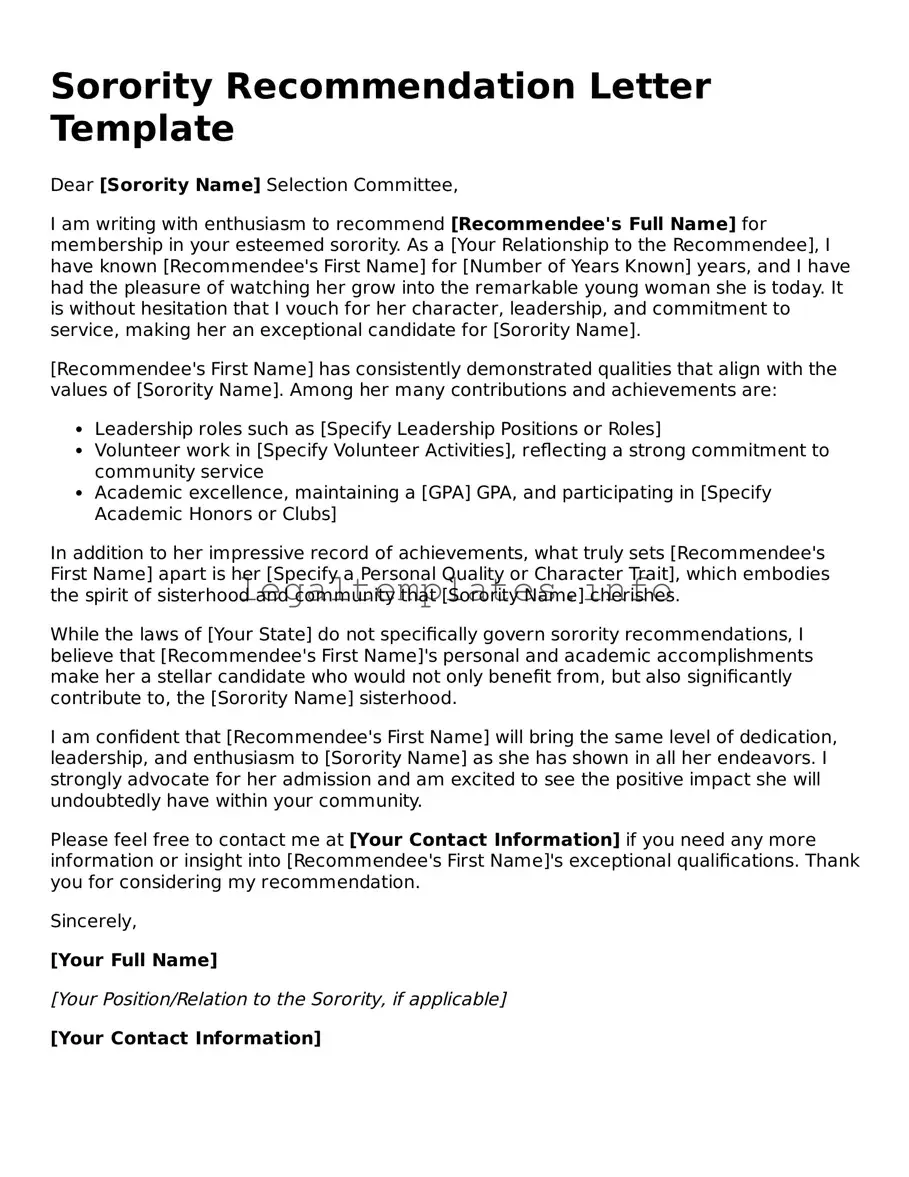What is a Sorority Recommendation Letter?
A Sorority Recommendation Letter is a document submitted by an alumna of a sorority to the sorority house on behalf of a prospective member. This letter aims to endorse the candidate's application, highlighting her personal qualities, achievements, and reasons she would be a good fit for the sorority.
Who can write a Sorority Recommendation Letter?
Typically, an alumna of the specific sorority or a collegiate member in good standing can write a recommendation letter. The person writing the letter should have a personal or familial relationship with the applicant to provide detailed and compelling insights about her character and accomplishments.
What should be included in the letter?
A Sorority Recommendation Letter should include an introduction of the writer, the relationship between the writer and the candidate, detailed descriptions of the candidate's qualities and achievements, and why she would make a good member of the sorority. It should also have a clear endorsement of the candidate.
How formal should the letter be?
The letter should maintain a formal tone, reflecting respect for the sorority and its members. Proper salutations, grammar, and punctuation are important. However, personal anecdotes that showcase the candidate's qualities can be included to add a personal touch.
Is there a specific length for the Sorority Recommendation Letter?
While there is no strict length requirement, a well-detailed letter typically spans one to two pages. It should be concise yet comprehensive enough to cover the candidate's attributes and the writer's endorsement.
What happens after submitting the letter?
After submission, the sorority's recruitment committee reviews the letter as part of the selection process. The committee may reach out to the writer for additional information. The candidate may also be invited for an interview or a meet and greet session with the sorority members.
Can a Sorority Recommendation Letter guarantee membership?
No, a Sorority Recommendation Letter does not guarantee membership. It serves as a strong endorsement that can positively influence the committee's decision, but candidates must also meet other criteria and requirements set forth by the sorority.
Are digital or handwritten letters preferred?
Most sororities now prefer digital letters due to convenience and the ease of distribution among committee members. However, the preference can vary by sorority, so it is advisable to check their specific submission guidelines.
What if I don’t know anyone who can write a Sorority Recommendation Letter for me?
If a candidate does not know a sorority alumna, she can reach out to local alumnae chapters, attend public events hosted by the sorority, or use collegiate chapter contacts to seek mentorship and eventually request a recommendation. Some sororities may also provide alternative application methods for those without a recommendation letter.

